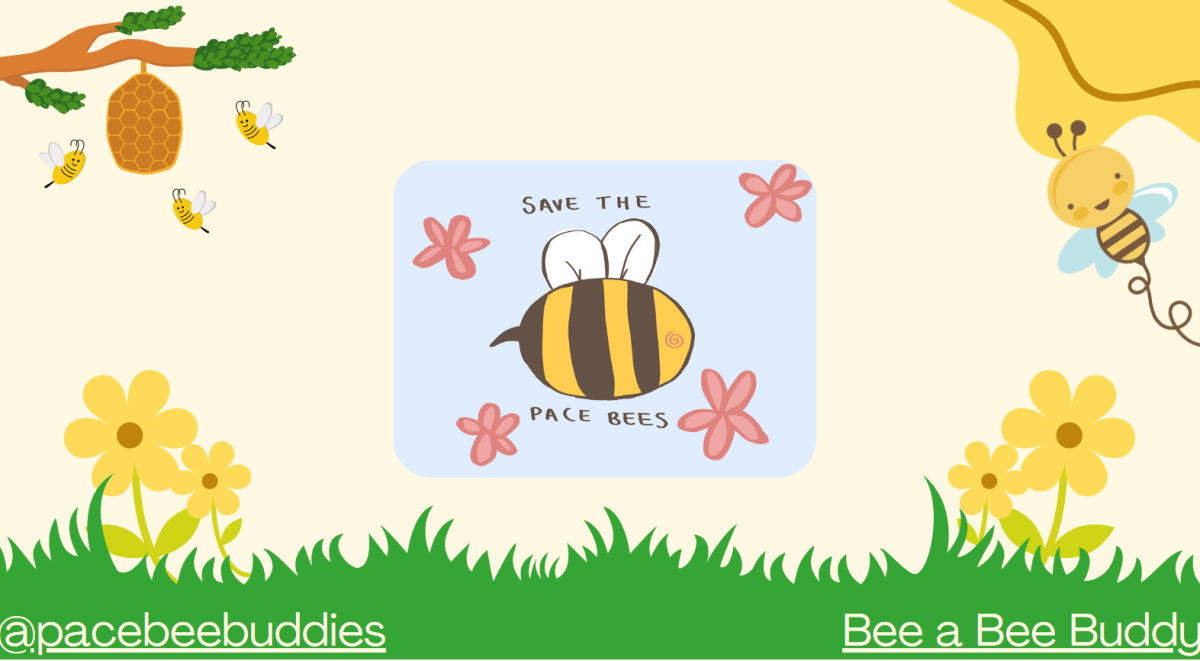In recent years, conversations around bees have started buzzing in environmental science circles, and for good reason. These industrious insects play a critical role in our ecosystem and agriculture, acting as crucial pollinators that carry the weight sustaining biodiversity and the environment on their nonexistent shoulders. Despite their importance, many widely misunderstand and fear bees. Yet their contributions to the world are second to none.
On campuses around the country, including our own, students and faculty are beginning to recognize the ecological value of bees, leading to conservation efforts and core educational initiatives that aim to shift beliefs, but more can bee done and understood.
The Essential Role of Bees in Biodiversity
Bees are nature’s most efficient pollinators, responsible for the reproduction of 75% of flowering plants. Without bees, our landscapes would lack the vibrant diversity of colors, smells, and life that we see in our parks, forests, and the general nature around us. But bees are not only essential to aestheticism, as their pollination services are a vital part of agriculture. Common market foods such as apples, almonds, berries, and tomatoes rely heavily on the bees to be able to grow and flourish. It is in this process that a third of the food produced depends on the pollination primarily carried out by bees.
This pollination process is the bee’s knees for biodiversity. When bees pollinate different plant species, they support the reproduction of plants that feed and shelter other organisms. The ripple effect of this cycle is enormous. By directly inducing plant growth bees also indirectly support all the creatures that rely on those plants for food. This intricate web of dependencies highlights bees as the linchpin of ecosystems, proving that a decline in bee presence can lead to reduced plant reproduction and affect the animals that rely on those plants for food and shelter.
However, a common misconception is that all bees live in hives and produce honey. There are around 20,000 bee species worldwide, each with unique habits. Only a fraction of them are honey producers, while others, like mason bees and bumblebees, play significant roles in pollination without producing honey. These bees nest in soil, wood, or hollow sterns and spread pollination to plants by transferring pollen from one flower to another. While bees’ benefits are well-documented, they often face an image problem that diminishes their reputation.
Many people hold onto another common misconception that bees are aggressive and look to sting humans at any opportunity. Unlike wasps, most bee species are more focused on gathering nectar and pollen than on bothering humans. However, it is in this disturbing of bees that they feel threatened. Bees are docile creatures that will only sting in self-defense out of the protection of their hives. Unfortunately, a major contributor to the declining population of bees is the senseless swatting of them out of unnecessary fear.
Bee Populations Are Declining, How Can We Help?
Despite their importance, bee populations worldwide have been in decline due to various environmental pressures. Habitat loss, mass pesticide exposure, climate change, and disease have all contributed to the reduction in bee numbers. This decline is a pressing issue that affects not just agriculture but entire ecosystems.
Some campuses, including Pace, are taking steps to counteract these effects. As a campus practically carved out of nature, Pace has taken steps to foster a welcoming environment for bees. For instance, our Pleasantville campus is a certified affiliate of the “Bee Campus USA” program, which raises awareness of the role pollinators play in communities. In this program, Pace has created gardens where pollinators such as bees can find sources of food and where students can study pollinators and help develop solutions for their protection. Our pollinator garden near the science building provides a nectar-rich oasis that encourages bees to linger. Moreover, the campus has minimized pesticide use, opting for natural pest control measures instead, which help protect bee populations from harmful chemicals.
You do not need a degree in environmental science to make a difference in the lives of bees. Here are a few ways students can help:
- Plant Native Flowers: Planting native flowers in gardens or window boxes provides food for local bees. Native plants are particularly beneficial, adapting to local conditions and supporting native bee species.
- Avoid Using Pesticides: Chemical pesticides are a major factor in bee decline. Opt for natural alternatives or practice organic gardening methods whenever possible.
- Support Bee Conservation Efforts: Many organizations work to protect bees, restore habitats, and educate the public. Getting involved with these organizations or donating to their causes can make a significant impact.
- Educate Others: One of the most effective ways to change the beliefs of bees is to educate friends, family, and peers. By spreading correct information, you can help reduce the unfounded fear surrounding these beneficial insects.
- Create Bee Havens: For those with a crafty side, building small bee hotels or shelters can provide solitary bees with a safe place to rest and nest. These structures are easy to make and can be placed in gardens or yards.
- In a world facing many environmental challenges, bees offer a glimpse into the delicate balance of ecosystems. Without them, our food systems, natural landscapes, and ecological balance would be in severe jeopardy. By respecting and protecting these humble-bees, we safeguard biodiversity and create a more sustainable world for the future.

